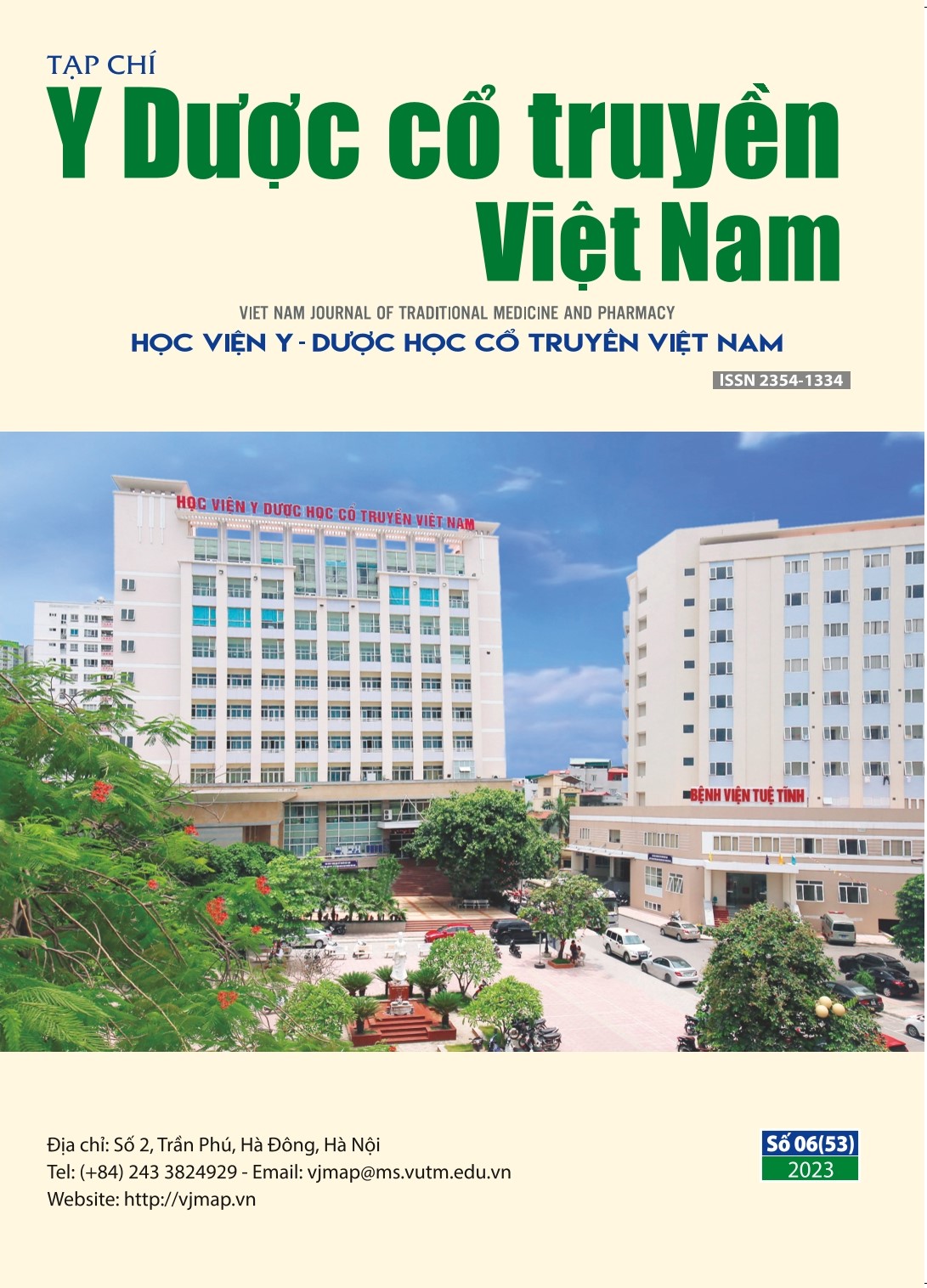Study on mosquito repellent effects and safety of basil essential oil (ocimum basilicum l. oil) on healthy volunteers
Main Article Content
Abstract
Objective: To test repellent effects of basil essential oil on Aedes aegypti, Anopheles minimus and Culex tritaeniorhynchus mosquitoes on healthy volunteers.
Subjects and methods: This testing was conducted according to WHO’s guidelines. A total of 1,200 mosquitoes of individual species were selected and divided in different groups of 200 mosquitoes each. Six (6) healthy volunteers including 3 males and 3 females measured their forearms and exposed those skin areas with approximately 600 cm2. The right forearms were smeared with the solvent while the left forearms were smeared with 2 ml of pure basil essential oil or a blend of essential oil - ethanol 700 (7:3). Each volunteer put their arms in the cage for 3 minutes, then counted the number of mosquitoes biting and touching the skin as well as estimated the mosquito repellant effect at the times of 0, 1, 2, 3, 4 and 6 hours after applying the testing samples. Additionally, the healthy subjects were observed and interviewed about adverse drug reactions (if any) within 6 hours of applying basil oil.
Results: The test samples revealed high repellent effects on three tested mosquito species. These effect values differ insignificantly after treating samples at 1, 2, 3, 4 and 6 hours (p > 0.05). However, repellent effects at 3, 4, and 6 hours significantly decreased compared to that after immediately treating testing samples (p < 0.001). The repellent effects of both samples on Culex tritaeniorhynchus at 6 hours were significantly lower than that on Aedes aegypti and Anopheles minimus (p values < 0.05). No adverse drug reactions were observed in all 6 patients.
Conclusions: Basil essential oil had high mosquito repellent effects on volunteers and no adverse drug effects.
Article Details
Keywords
Basil essential oil, mosquito, repellent effect, adverse drug reactions, healthy volunteers.
References
2. Kiplang’at K.P, Mwangi R.W. Repellent activities of Ocimum basilicum, Azadirachta indica and Eucalyptus citriodora extracts on rabbit skin against Aedes aegypti. Journal of Entomology and Zoology Studies, 1 (5), 2013, pp.84-91.
3. Nguyen Thi Minh Thu, Nguyen Duc Thanh, Đoan Minh Khiet. Study on mosquito repellent effect of basil oil (Ocimum basilicum L. Lamiaceae) in experimental animals. Journal of Vietnam Traditional Medicine and Pharmacy, Vol. 20/11, 2021, pp. 5-12.
4. Nguyen Thi Minh Thu, Nguyen Duc Thanh, Do Thi Phuong. Research on effects of basil oil (Ocimum basilicum L.) on skin and some vital functions of the experimental rabbits. Journal of Vietnam Traditional Medicine and Pharmacy, Vol. 6 (47), 2022, pp. 38-44.
5. WHO. Guidelines for efficacy testing of mosquito repellents for human skin, WHO/HTM/ NTD/WHOPES/2009.4, 2009.
6. Science direct. Mosquito - an overview. Science direct, 2019, Retrieved from https://www.sciencedirect.com/topics/immunology-and-microbiology/mosquito on March 13, 2021.
7. Sritabutra D., Soonwera M. Repellent activity of herbal essential oils against Aedes aegypti (Linn.) and Culex quinquefasciatus (Say.), Asian Pacific Journal of Tropical Disease, 3(4), 2013, pp.271-276.

